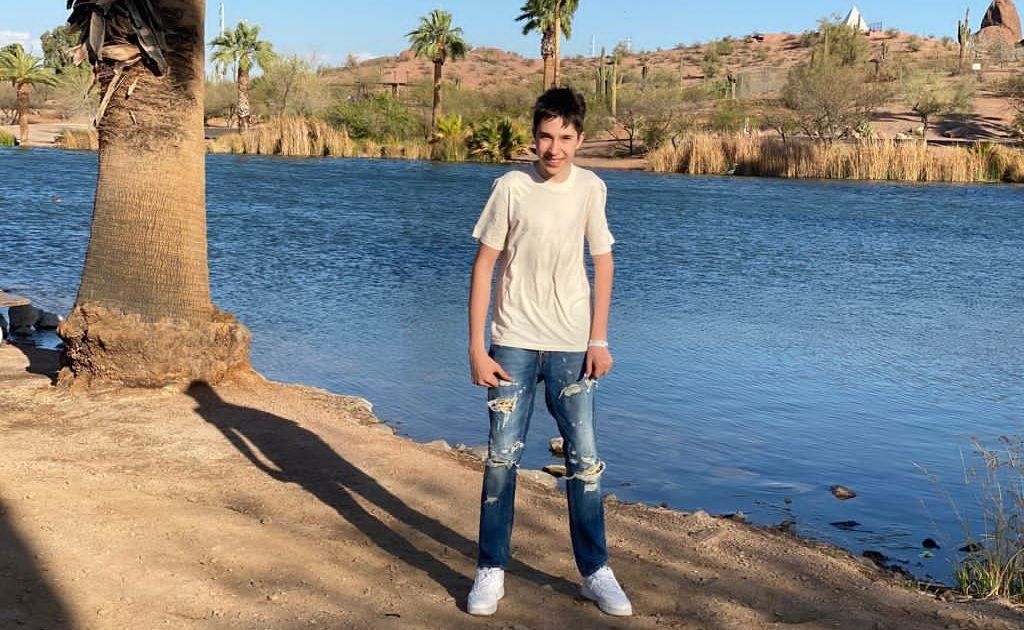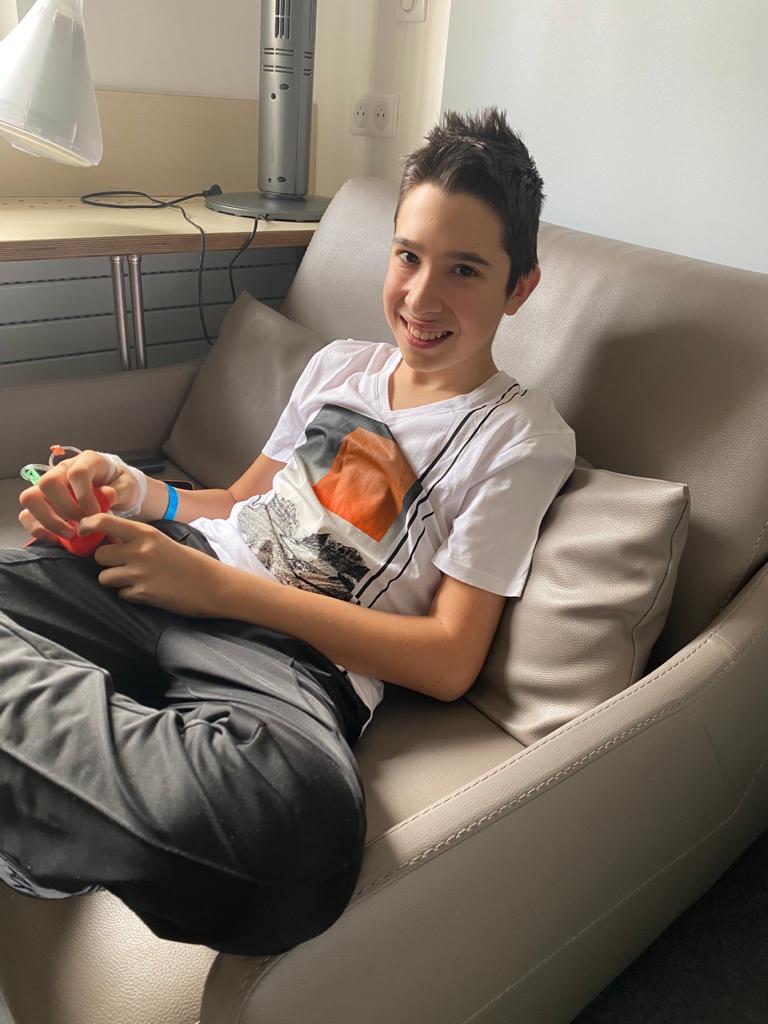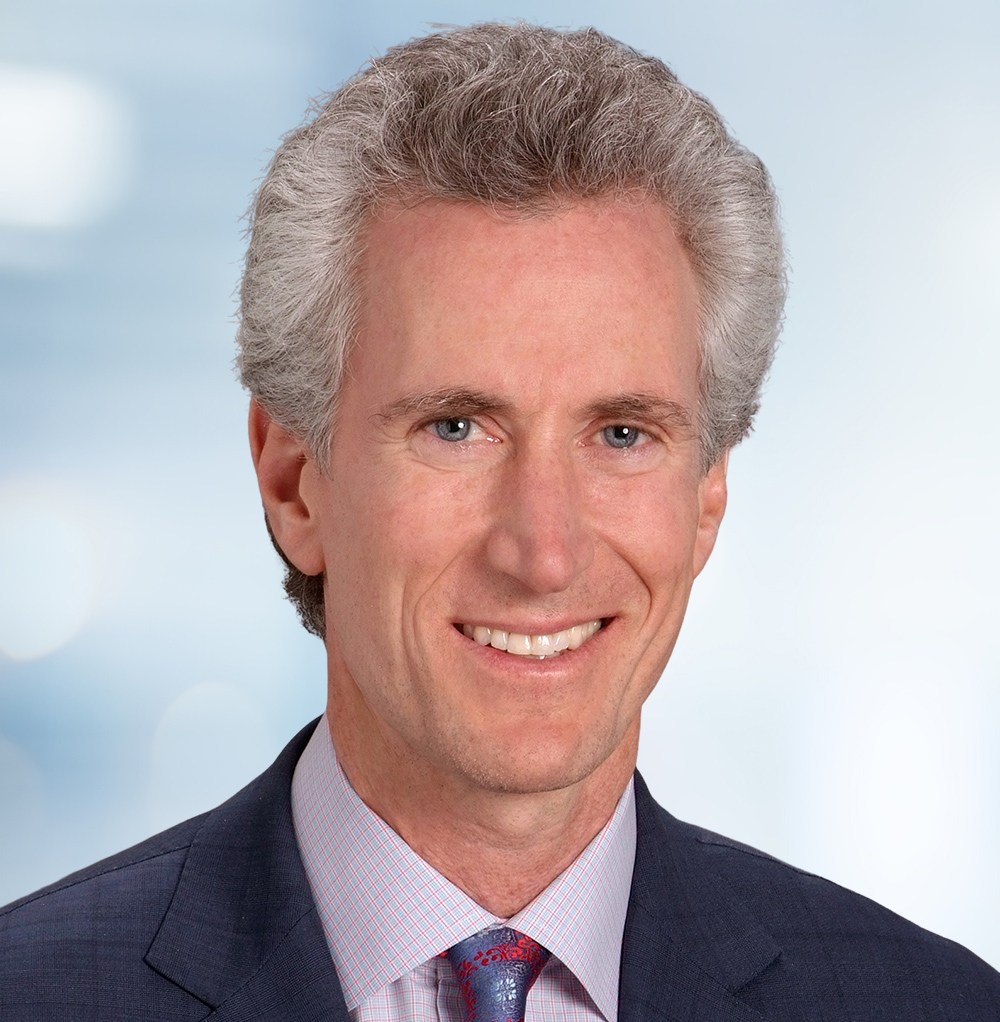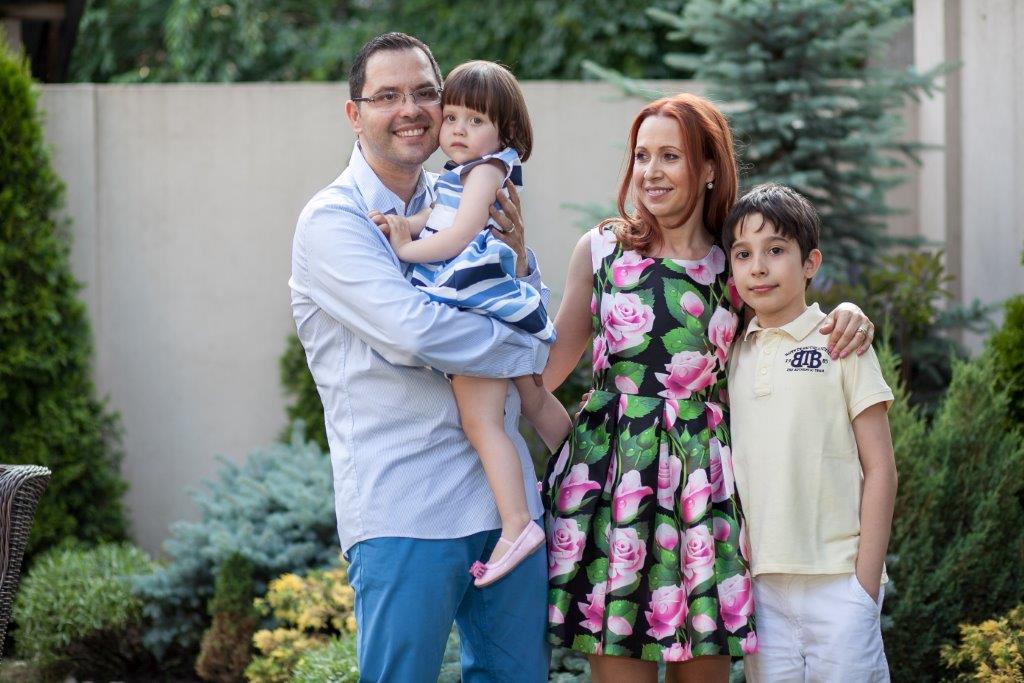
Romanian Teen’s Complex Spinal AVM Successfully Treated at Barrow
Neurosurgeons at Barrow Neurological Institute at Dignity Health St. Joseph’s Hospital and Medical Center in Phoenix have successfully removed a 15-year-old Romanian boy’s very rare and complex spinal AVM, eliminating the teen’s prognosis of becoming a permanent quadriplegic. Stephan Pascu is now recovering at Barrow and is expected to return home to Romania with his parents this weekend.
“We consulted with Europe’s top neurosurgeons and were told that my son’s lesion was inoperable,” said Marlena Pascu, Stephan’s mother. Without surgery, the lesion could continue to rupture at any time and cause paralysis or even catastrophic death. “We are grateful to have found Barrow to treat Stephan. It’s spectacular and truly a miracle.”
Stephan was diagnosed in 2016 with an arteriovenous malformation (AVM), an abnormal tangle of arteries and veins with high blood flow, on his spinal cord after experiencing severe pain in his left arm. He first underwent a procedure in Switzerland to reduce the blood flow to the AVM, however the AVM ruptured two years later, causing weakness on the left side of his body.
Stephan then underwent further treatment in Paris, but the AVM again hemorrhaged, leaving him in a coma and in the ICU for two weeks. While Stephan partially recovered, the AVM would continue to rupture and cause progressive neurological decline unless it was completely removed.
After consulting with Europe’s top neurosurgeons, Stephan and his parents were told that the AVM was too large and complex to remove. His parents opted for a second opinion in the United States and were referred to neurosurgeon Michael Lawton, MD, president and CEO of Barrow.
Dr. Lawton told the Pascu family that the AVM could be removed, and he agreed to treat Stephan. Dr. Lawton is considered one of the world’s top brain surgeons and is known for treating the riskiest and most complex of neurological diseases.
“Spinal AVMs are incredibly rare, affecting approximately 10 in every 1 million people,” said Dr. Lawton. “They are known to be very difficult to treat and can cause debilitating damage if left untreated.”
Before undergoing care at Barrow, the Pascus had to obtain a special clearance to travel internationally as a result of the pandemic. Barrow’s second opinion and international programs assisted the family in securing special permission to travel for medical care.
“Traveling internationally during the COVID-19 pandemic was definitely different,” says Cristian Pascu, Stephan’s father. “The borders were closed, and we were grateful the embassy gave us special permission to travel so that Stephan could receive medical care with Dr. Lawton at Barrow.”
The Pascus arrived in Phoenix on March 6, and Stephan underwent two surgeries and four angiograms at Barrow in the following days to successfully and completely remove the AVM. After more than seven weeks in the hospital and undergoing intensive neuro-rehabilitation, Stephan has been given medical clearance to return home to Romania this weekend where he will resume neuro-rehabilitation to continue regaining his strength.
“Stephan’s AVM was one of the largest and most complex to have ever been successfully treated, and I am delighted with his recovery,” said Dr. Lawton. “His AVM is completely gone, and he is no longer at risk for continued hemorrhage or neurological decline from the AVM. “Stephan is working hard in neuro-rehabilitation to regain some decreased strength and weakness in his left hand, but we expect him to make a great recovery due to his young age and neuroplasticity.”
Stephan, who can’t wait to return home to see his sister, friends, and dog, is grateful for his outcome and hopes his story will help others.
“It’s been a scary few years, but thankfully I was able to find help,” Stephan said. “My advice for others experiencing a similar medical condition is to stay patient and hang on.”
In the News:
12News: Romanian teen recovering from surgery at Barrow Neurological Institute at Dignity Health
Fox 10 Phoenix: Romanian teen underwent surgery for rare condition in Phoenix




